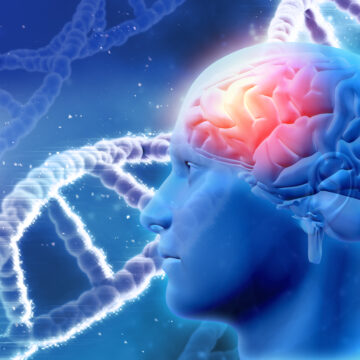
- There is no cure for Alzheimer’s.
- The cognitive disease is genetic.
- Knowing your risk factors for the condition can help you start making better lifestyle choices.
Alzheimer’s disease affects brain function. The early stages of the condition usually cause memory loss, such as:
- forgetting or repeating conversations
- forgetting events, and names of familiar people and places
Alzheimer’s disease worsens over time. In the late stages, Alzheimer’s patients often need help with basic everyday activities like eating, dressing, and bathing.
According to researchers, the cause of Alzheimer’s disease is still unknown, and there is still no cure for it. However, certain factors can increase your risk of developing it. Some of these risk factors can be managed through lifestyle changes. Talk to your doctor about how you can lower your risk.
1. Age

Alzheimer’s is not a normal part of aging. However, people who are growing older are at a higher risk of developing this condition. According to the Alzheimer’s Association, Alzheimer’s affects 1 in 9 people over 65 years old, and 1 in 3 people over 85 years old.
2. Gender
One study found that women have a 1.5 to 3 times higher risk of getting Alzheimer’s than men. Menopause can further increase this risk. But women’s longevity may also be at play in these rates.
3. Genes
There are two classes of Alzheimer-related genes, according to research. A person’s deterministic genes guarantee that they will develop the disease if they live long enough. These people usually develop Alzheimer’s between ages 30 to 50. According to the Mayo Clinic, these genes are responsible for 5 percent of Alzheimer’s cases.
People with risk genes may not always develop the disease. Still, their risk for the disease is higher than those without risk genes. The apolipoprotein E-e4 (APOE-e4) is the gene most commonly correlated with Alzheimer’s.
4. Family history

Alzheimer’s is genetic. You’re more likely to develop the disease if your parent, sibling, or child has it. Your risk increases if multiple family members have it. The gene APOE-e4, lifestyle factors, or a combination of both may be at play here.
5. Head trauma
People with a history of head injuries have a higher risk of Alzheimer’s. The risk is especially high for those whose injury involves losing consciousness or happens repeatedly.
6. Brain abnormalities
Scientists have found brain abnormalities in people who are at a high risk of Alzheimer’s. One abnormality is having tiny clumps of protein, also known as plaques, or the presence of twisted protein strands, or tangles. Other signs of developing Alzheimer’s include inflammation, shrinking tissues, and connection loss between brain cells.
7. Smoking
Smoking has been identified as a risk factor for Alzheimer’s. According to a review of 19 studies published in the American Journal of Epidemiology, people who smoke were more likely to develop Alzheimer’s and other forms of dementia compared to those who had never smoked.
8. High blood pressure

According to research, there’s a strong link between hypertension at middle age and a heightened risk of developing Alzheimer’s later on.
9. Obesity
Being overweight can increase your risk of Alzheimer’s by almost double.
10. Limited physical activity
Lack of exercise can heighten your risk of Alzheimer’s. You can lower your chances of Alzheimer’s later by exercising at least twice a week during midlife.
11. Lack of mental activity
Mentally-stimulating activities might also decrease your risk. You can try:
- pursuing a higher education
- learning a musical instrument
- working a job you like
- playing brain games like puzzles
- reading
These activities may help maintain your cognitive health. Interacting with other people may also help. According to researchers, this might be because your brain develops more internal connections through these activities.
12. Poor diet

People who don’t eat enough fruits and vegetables may be at a higher risk of Alzheimer’s, per the Alzheimer’s Association.
The takeaway
Talk to your doctor if you’re worried about your Alzheimer’s risk. Note any memory problems you’re having and discuss them with your doctor during your appointment. Early diagnosis of Alzheimer’s will help you start treatment that will manage your symptoms.
Via Healthline
